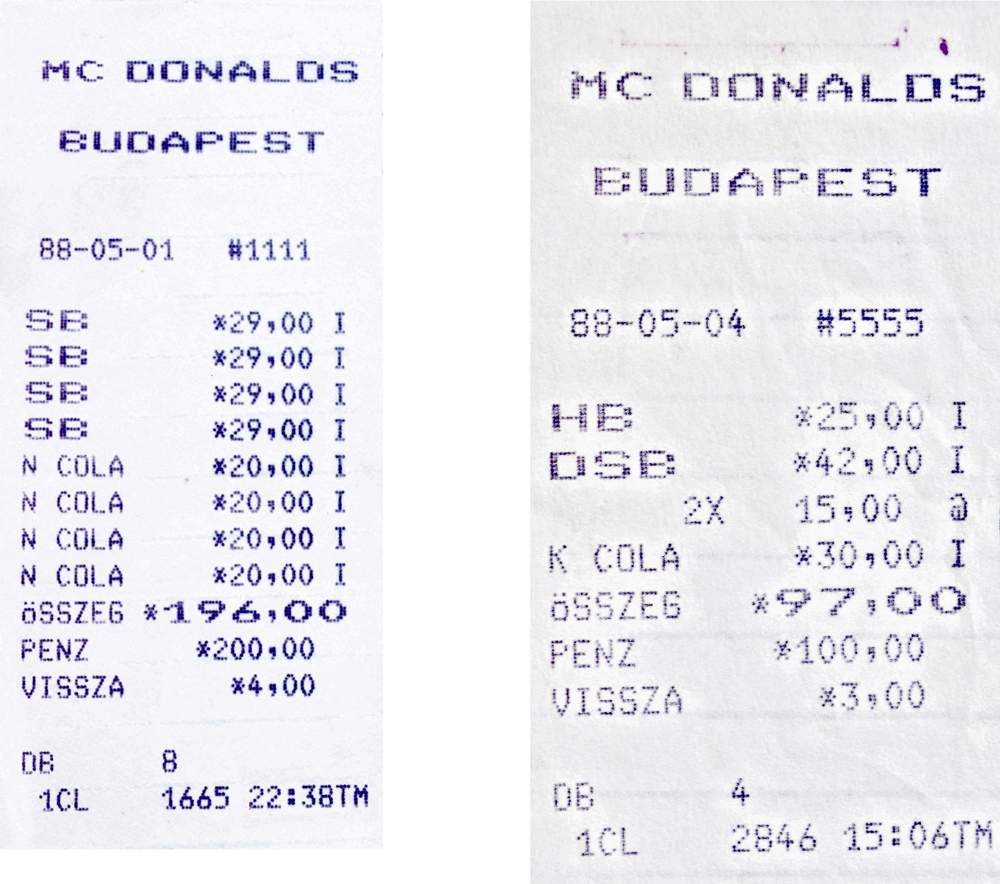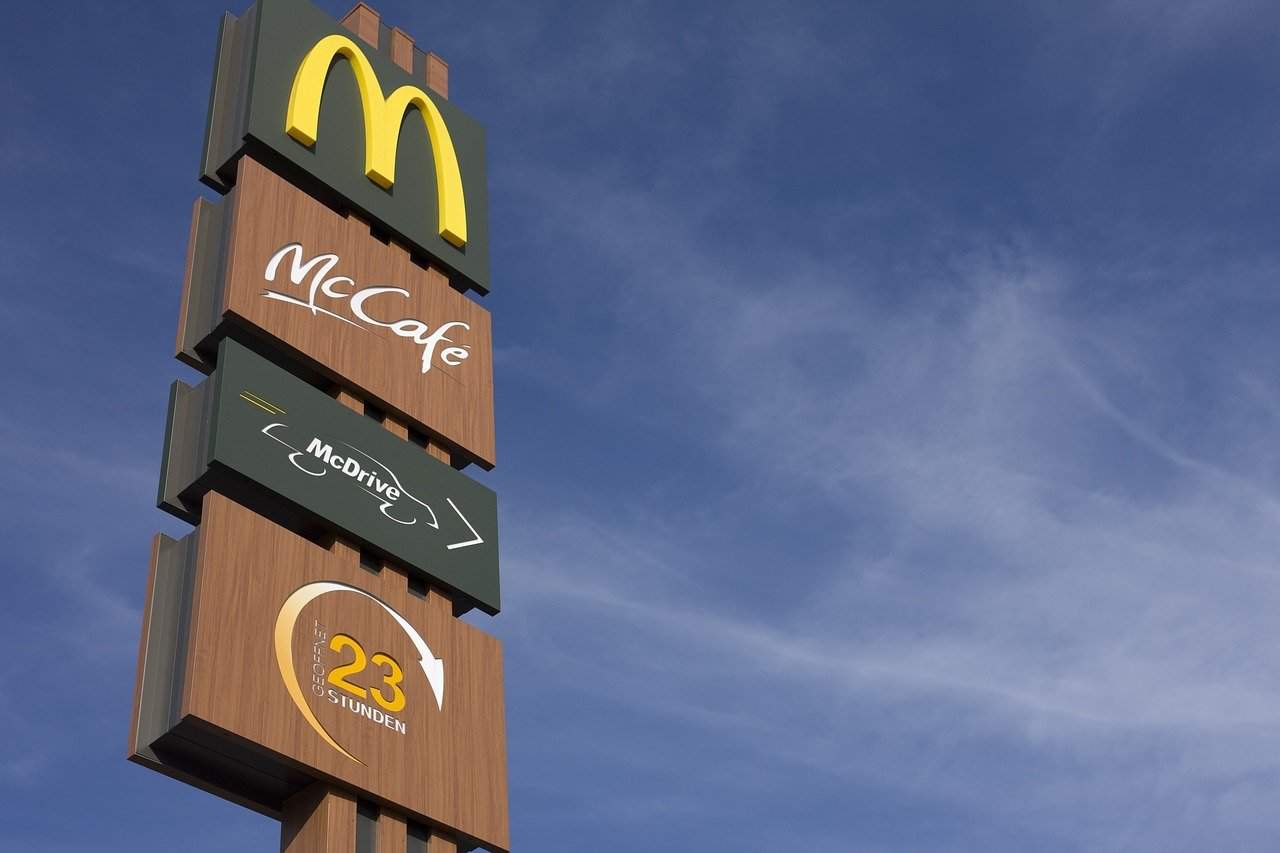This is how the first McDonald’s was opened in Hungary during communism
The first McDonald’s in Hungary was opened on the 29th of April, 1988 in Régiposta street, downtown Budapest. The following is a recollection by the Ekkoriban blog of what people experienced during the early McDonald’s days.
The competition
There was a Hungarian equivalent of McDonald’s in those days: City Grill. The interior design of the restaurants, how the hamburgers were packed and the coke with a straw all had a purpose. Everything was designed to prove that you can live like those people in the commercials even during Communism. The biggest City Grill was at the Taverna hostel at Váci street. City Grill had great success up until the point when the first McDonald’s was opened just a couple feet away.
There was another Hungarian fast food chain, the Paprika, in the American style. These were self-service restaurants, where goulash, lecsó were served and beef stew with egg barley and mixed pickles.
The first trip to McDonald’s
Just the thought of having a McDonald’s in Hungary brought great joy among teenagers, as it meant that the modern ‘West’ was one step closer. In official announcements, the news was presented in such ways that the appearance of the American fast food chain was justified and easy to accept. It was always emphasized that it was the company that contacted Hungary and not vice versa. Róbert Burger, who was the head of Bábolna Farm for almost 30 years, said the following after the signing of the contract in 1986:
We want to connect with the younger generation, as these restaurants are not for alcoholics, we do not serve alcohol. We build on younger people and children, and on pensioners too, as our services are fast and cheap.
There were only the five basic sandwiches on the menu: hamburger, cheeseburger, double hamburger, double cheeseburger and the Big Mac. French fries, ice cream, Coca-Cola products, and shakes were served too, but there were no breakfast menus and no drive-through.
How cheap was it, really? Well, it depends on what do you compare the prices to. On the 1st of May 1988, the author of the article took a trip to Budapest’s first McDonald’s with some friends. They bought four cheeseburgers, which each cost 29 HUF back then, which equals to 0.95 euro cents and four big cokes, each cost 0.65 cents, so they paid 64 euro cents altogether. A couple days later the author and his girlfriend bought a hamburger and a double cheeseburger with two small cokes and paid 31 cents, so the hamburger cost 0.8 cents.

photo: ekkoriban.blog.hu
However, they were quite disappointed, as they would have paid only 41 cents for the four cheeseburgers and big cokes at City Grill. There the cheeseburger was only 0.75 cents and the big coke 0.4 cents
Compared to the current prices, a hamburger cost 1,5 EUR back then, however, it is barely one euro today. You could buy a theatre ticket for the price of two or four hamburgers (16-32 cents), but today you would have to give up on ten hamburgers. A Hungarian band’s bakelite album was the price of six hamburgers put together (50 cents), a foreign band’s album was 90 cents, which meant that you had to skip eleven hamburgers. A cinema ticket cost 15 cents, the price of two hamburgers, but today it is the price of six burgers. You could feed a family of four at a downtown restaurant (two main courses, refreshers, beer, coffee) for the price of 30 hamburgers, that is 2,5 euros. This would be quite impossible today, even if 30 hamburgers would cost you 25 euros.
Source: ekkoriban.blog.hu
please make a donation here
Hot news
Drama: number of births in a 20-year low in Hungary
Yay or nay? – 6 odd Hungarian delicacies that make our skin crawl
Budapest tourism “exploded” this past weekend
Container transport in Budapest may stop: How will this affect Hungarian economy?
Minister: Hungary will protect its territory by every means possible
Orbán cabinet may double airspace fee: another ticket price increase?





5 Comments
During the time of City Grill, Hungary was a Communist nation, not Socialist, and still well in control of the now defunct Communist Russian State. Today, Hungary is a Socialist nation, similar to all other left leaning European nations as well as the United States. Russia on the other hand is far more right wing than most Western nations care to accept.
[…] The first McDonald’s opened in Hungary, in 1988 […]
I went once to a new McDonalds in Budapest that had just opened in late October or early November of 1985, when I was residing in Budapest. The report is wrong: the first McDonalds did not open in 1988, but in 1985. And it was in Pest a short way across from Rákóczi híd at the site of the present-day McDonalds that is now located there, but much less elaborate or developed. Why is there a collective amnesia about this?
I remember the City Grill on Vaci utca!! It was from Winter 1988 to Early 1990 when we lived in Budapest as part of the British Embassy. My sisters and I would much prefer to go there instead of MacDonalds cos the Burgers tasted so typically paprika-y and were EVEN cheaper compared to British prices than a few steps further at Maccy-D’s. Even there the burgers had a distinct flavour of paprika, and I remember that the meat came from it’s own MacDonald’s farm – probably the one mentioned in the article above.
We used to go for an ice cream on Vaci Utca afterwards, but I guess that ice cream parlour has long closed …
Also another restaurant we used to go to as a family was called the Vigado, also nearby somewhere, with friendly waiters and solo keyboard entertainment in the background … Memories … lol … We LOVED Budapest … sigh!!
Before starbucks in the 80s, brewed coffee was everywhere and all you could drink for 35-50 cents. brewed coffee is the biggest drink in the US and here it almost doesn’t exist and it’s little like a Americano that is basically espresso with hot water. The best coffee I have had here and prague is at hotels and B&B that include breakfast. Many coffee places in the US brew coffee and it’s richer stronger than a double espresso here.